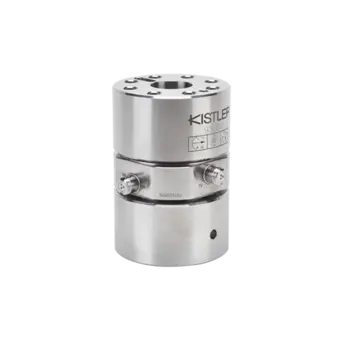Sensore piezoelettrico di forza-coppia a 6 assi (Fx, Fy, Fz, Mx, My, Mz) / 9306A

- Sensore di forza-coppia a 6 assi con campi di misura Fx, Fy: -5 ... 5 kN, Fz: -5 ... 10 kN e Mx, My, Mz: -200 ... 200 Nm
- Connessione: 2 x V3 neg.
- Dimensioni: DxH (mm) 62x90
Measuring ranges
Questo Sensore di forza-coppia a 6 assi misura tutte le forze e i momenti corrispondenti sui tre assi ortogonali. Tutte le forze e i momenti vengono acquisiti come segnali fisici piezoelettrici e non devono essere calcolati. L'esclusiva configurazione di misura di questo sensore piezoelettrico multiasse consente un design estremamente piccolo e compatto. Pertanto, è possibile realizzare modelli concisi di processi dinamici e quasistatici tridimensionali anche in installazioni strette. Sensori piezoelettrici pretensionati di forza-coppia a 6 assi con due flange di montaggio. Misura forze e coppie di reazione sia in trazione che in compressione. Una forza o una coppia di reazione genera una carica elettrica proporzionale. Questa viene trasferita da un elettrodo al connettore corrispondente. Il Sensore di forza-coppia multiasse è costituito da dischi di quarzo di grande superficie ed è quindi molto rigido. L'elevata frequenza naturale che ne deriva è un prerequisito per misurare forze e coppie altamente dinamiche. I due connettori V3 neg. a 3 poli sono dotati di blocco antitorsione. Un connettore ciascuno per i segnali di forza e di coppia. Una volta installato correttamente, il Sensore di forza-coppia a 6 assi è immediatamente pronto per l'uso senza ritaratura.
